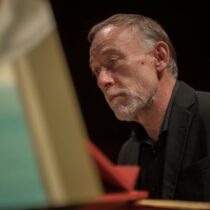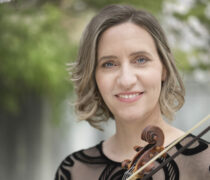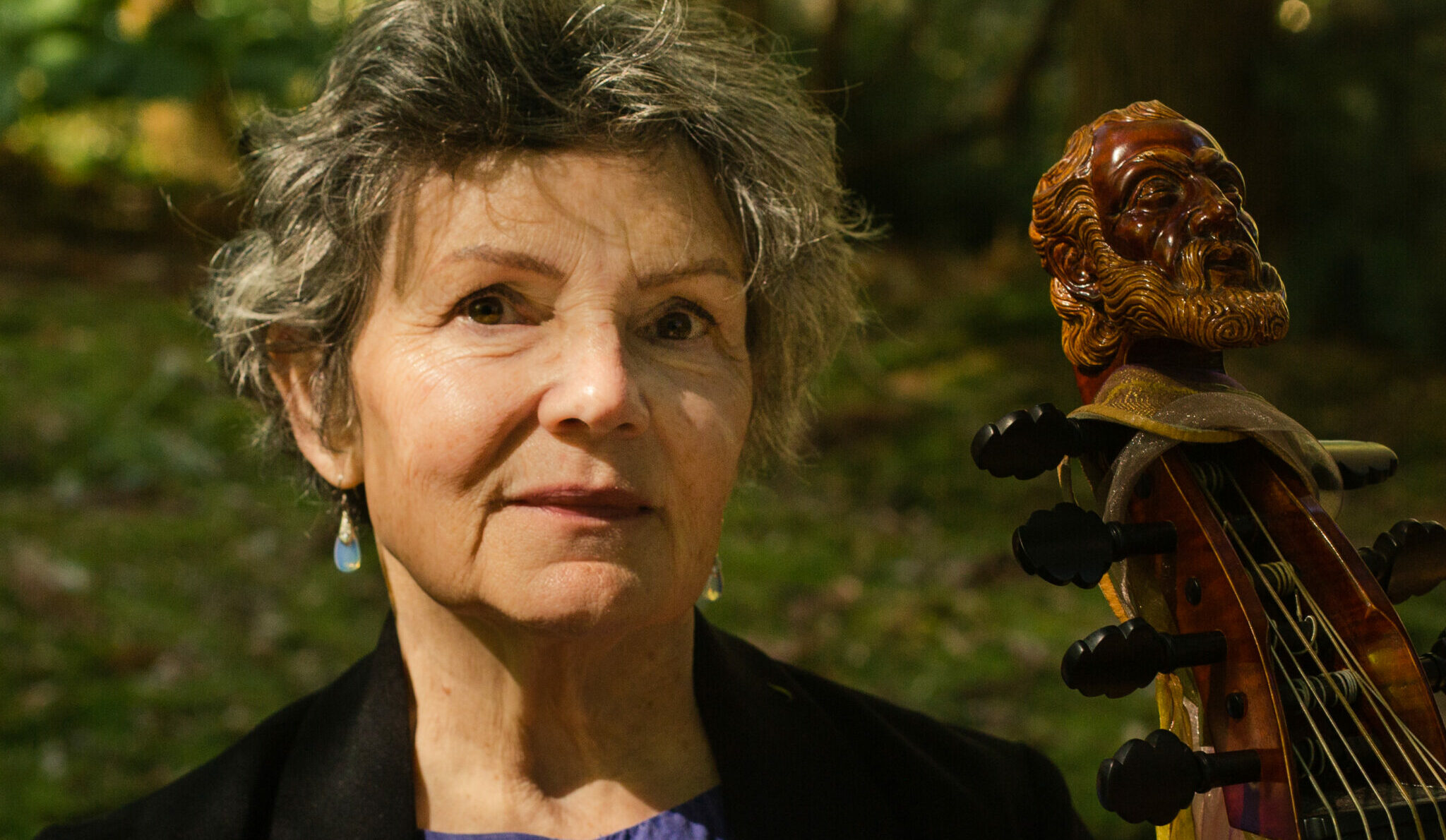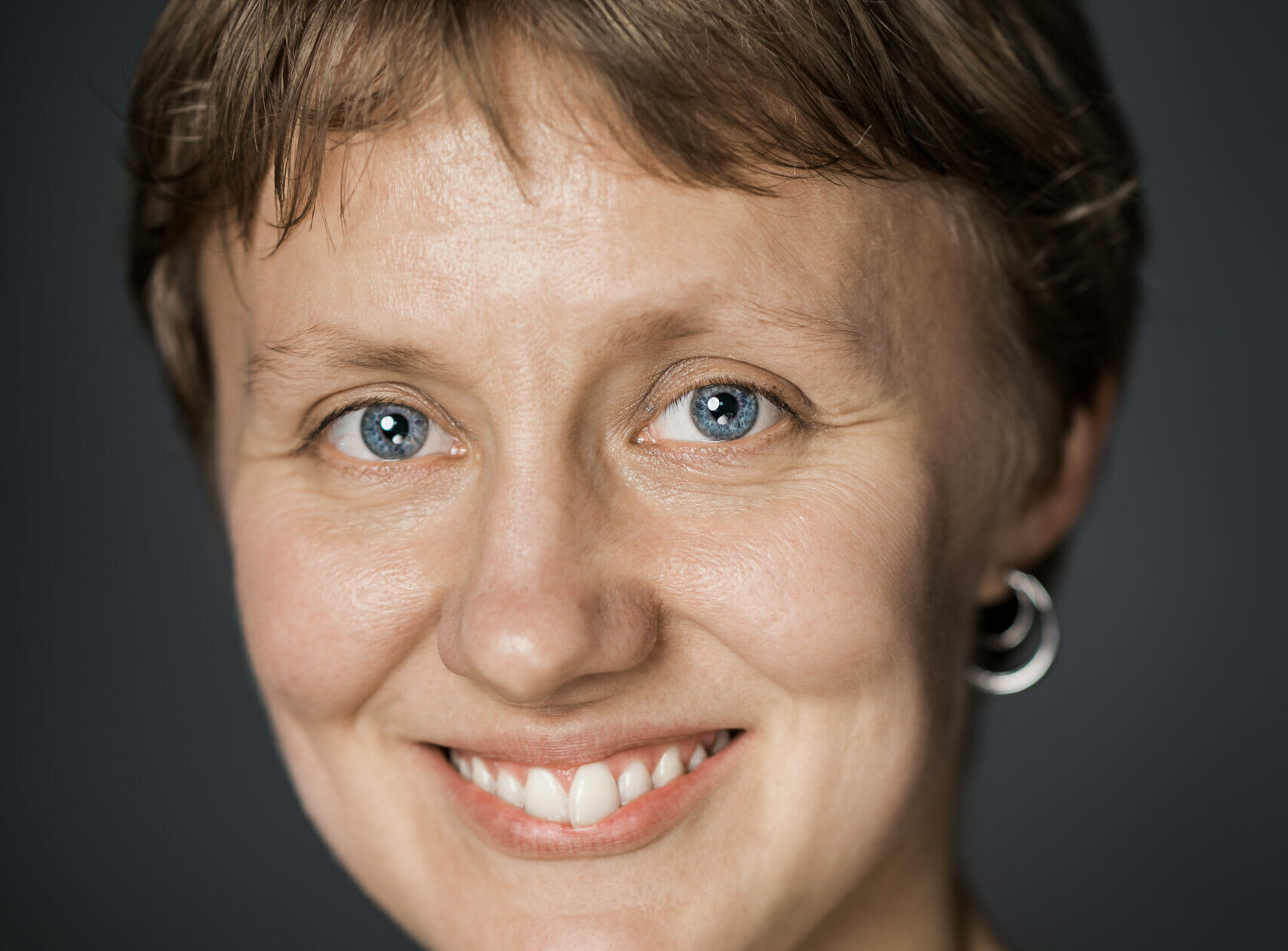Alexander Weimann, Harpsichord; Chloe Meyers, Violin; Natalie Mackie, Gamba; Soile Stratkauskas, Flute
Bach’s Musical Offering was initiated in 1747 when Frederik the Great invited 62-year-old J.S. Bach to his court with a challenge: to improvise a three-part fugue on a complicated musical theme chosen by Frederik himself. To the amazement of all present, “Old Bach” met the challenge with unprecedented creativity and innovation. Bach sent the King The Musical Offering, a brilliant collection of canons and fugues, and a trio sonata that is without parallel in 18th century chamber music, all dedicated to exploring and exhausting the contrapuntal possibilities of the same musical theme. Composed in 2002, Vancouver composer Jocelyn Morlock’s “Revenant” is based on reversing the same royal theme.
Access to the concert is free, but donations are greatly appreciated. Concert will remain online one year from premiere date.
This concert is generously supported by Delma Hemming
How to watch:
ONLINE: Watch the concert online by clicking here.
This concert is available to watch for free thanks to the generosity of donors. To support our programming by making a tax-deductible donation, click here.
Concert will remain online one year from premiere date.
Programme
Johann Sebastian Bach (1685-1750)
“The Musical Offering” BWV 1079:
Exordium
Thema Regium (Royal Theme)
Ricercar à 3
Narratio
Canon perpetuus super Thema Regium
Canones diversi super Thema Regium:
Canon à 2
Canon à 2 in unisono
Canon à 2 per Motum contrarium
Canon à 2 per Augmentationem, contrario Motu ‘Notulis crescentibus crescat Fortuna Regis’
Canon à 2 per tonos ‘Ascendente Molulatione ascendat Gloria Regis’
Fuga Canonica in Epidiapente
Propositio
Ricercar à 6
Argumentatio
Canon à 2 Quaerando Invenietis
Canon à 4
Sonata sopr’il Soggeto Reale: Largo, Allegro, Andante, Allegro
Conclusio
Canon perpetuus
Jocelyn Morlock (b.1969)
“Revenant”
Programme Notes
Loaded with mystery, enigmas, and hidden meanings, the Musical Offering has intrigued musicologists and musicians through generations. Bach wrote this masterpiece two months after his legendary visit to the Prussian court of Frederick the Great in Potsdam where his second son, Carl Philipp Emanuel, was a musician. Frederick, an avid flute player and composer of some talent himself, had been curious to meet the famed ‘old Bach’ and had urged Carl Philipp to invite him to the court. In 1747 at the age of 62, Johann Sebastian undertook the long trip from Leipzig. As he arrived, the King was about to begin his nightly chamber music concert with his court musicians, and Bach wasn’t given the time to even change out of his travel clothes, as Frederick invited Bach to join the party and try the King’s collection of brand-new fortepianos.
Intrigued by Bach’s fame as an improviser, Frederick gave Johann Sebastian a theme to improvise upon. He first asked for a regular three-part fugue, which Bach mastered to the great astonishment of his listeners. The King then asked for a six-part fugue on the same tune: as the theme lent itself poorly to counterpoint, Bach chose to use a theme of his own for the latter improvisation.
Unable to respond to the King’s challenge on the spot, Bach set himself to perfect the task in print, and two months after his visit Frederick was sent the completed Musical Offering, a collection of pieces dedicated to the King, based on Frederick’s “Thema Regium” (Royal Theme). This collection exhausted the contrapuntal possibilities of the theme, entailing two fugues titled Ricercars, one in three and one in six parts; 10 canons in different forms; and a grand trio sonata, scored for flute, violin, and basso continuo, honoring the King’s chosen instrument. The Musical Offering is considered one of the pinnacles of contrapuntal writing, and the six-part Ricercar to be Bach’s greatest fugue.
It is speculated that the theme is too complex to be by the King himself, but was rather by Carl Philipp, who might have hoped to challenge or embarrass his father in the presence of some of the finest musicians of the time. The school of strict counterpoint that Johann Sebastian had devoted his life to perfecting was by now considered stale and old-fashioned, and the Prussian court favoured the new, lighter gallant style that celebrated human expression and emotion. For Bach’s son’s generation, music was seen more as recreational entertainment, rather than a divine art form designed for the glory of God.
The Musical Offering is full of musical enigmas and riddles, and Bach’s motivations behind each detail have been the subject of great speculation. Dedicated to the glory of the King, some of the writing may actually be considered questionable commentary on the monarch. Canon a 2 per tonos is a transposing canon where each statement ends a whole tone higher: the inscription states “And as the modulation rises, so may the Glory of the King”, yet the journey through evermore uncomfortable keys hardly seems celebratory, and played six times, one returns to the original key, as if nothing had changed since the beginning. The flute part of the Trio Sonata, undoubtedly written with the King in mind, presents many highly unidiomatic and close-to-impossible passages for the instrument, which was unlikely by accident. And in the Trio Sonata’s third movement, with its sighing figures and abrupt dynamic changes, Bach appears to be imitating – or perhaps ridiculing– the gallant style of his son.
The performance order is not indicated in Bach’s publication. In this performance, the pieces are grouped together following Quintilian’s order of speech, derived from the rhetoric ideals of Ancient Greece, with which Bach would have been intimately familiar. Like many other of Bach’s late works, such as the Mass in B minor and the Art of Fugue, the Musical Offering may have been more of an abstract exercise in the quest for perfection in music, rather than intended for a performance.
Second on this programme, Vancouver-based Jocelyn Morlock’s Revenant (2002) is also an exploration of King Frederick’s theme. As stated in Morlock’s notes, the word Revenant is derived from French word revenir and means “one that returns after death or a long absence”. Written for the same instrumentation as the Trio Sonata of Bach’s Musical Offering, Revenant opens with the theme introduced by the harpsichord, notes played in reverse “as if the theme were moving backwards in time.” The theme is always near-present, alternating between freer fantasia-like and stricter sections, both nods to the past and the old idioms–most notable in the second, canonic section– and exploring new exquisite textures using the old instruments. The otherworldly final section with its stillness and mesmerising colours indeed appears to transcend time.
Notes by Soile Stratkauskas

Alexander Weimann, Harpsichord
Alexander Weimann is one of the most sought-after ensemble directors, soloists, and chamber music partners of his generation. After travelling the world with ensembles such as Tragicomedia, Cantus Cölln, the Freiburger Barockorchester, Gesualdo Consort and Tafelmusik, he now focuses on his activities as Music Director of the Pacific Baroque Orchestra in Vancouver, Music Director of the Seattle Baroque Orchestra, and regular guest conductor of ensembles including the Victoria Symphony, Symphony Nova Scotia, Arion Baroque Orchestra in Montreal and the Portland Baroque Orchestra.
Alex was born in Munich, where he studied the organ, church music, musicology (with a summa con laude thesis on Bach’s secco recitatives), theatre, mediæval Latin, and jazz piano, supported by a variety of federal scholarships. From 1990 to 1995, he taught music theory, improvisation, and Jazz at the Munich Musikhochschule. Since 1998, he has been giving master classes in harpsichord and historical performance practice at institutions such as Lunds University in Malmö, the Bremen Musikhochschule, the University of California (Berkeley), Dartmouth College (New Hampshire), McGill University, Université de Montréal, and Mount Allison (New Brunswick). He now teaches at the University of British Columbia and directs the Baroque Orchestra Mentorship Programme there. He has received several JUNO and GRAMMY Award nominations – most recently, for the album Nuit Blanches with the Pacific Baroque Orchestra and Karina Gauvin.

Chloe Meyers, Violin
Violinist Chloe Meyers is a regular guest leader and orchestra member of baroque ensembles all over North America. She has worked with ensembles including Les Violons du Roy, Tafelmusik, the Montreal Symphony Orchestra, Ensemble Les Boréades, the Theatre of Early Music, Les Idées Heureuses and Les Voix Baroques. She recently joined the Pacific Baroque Orchestra as concertmaster and will continue to play principal second with Arion Baroque Orchestra in Montreal. Most recently she played first violin on a Juno Award winning recording of Handel arias featuring Canadian soprano Karina Gauvin on the Atma Classique label.

Natalie Mackie, Gamba
Natalie Mackie studied cello at the Conservatoire de Musique (Québec), followed by a degree from the School of Music, University of British Columbia. While at UBC she was introduced to the viola da gamba, and following graduation, she pursued further studies at the Koninklijk Conservatorium in The Hague. Natalie has played with many ensembles in Canada and the US, including New World Consort, Les Coucous Bénévoles, Tafelmusik, Portland, and Seattle Baroque Orchestras, Les Voix Humaines, Tempo Rubato, Les Voix Baroque, Oregon Bach Festival Orchestra, Victoria Baroque, and Vancouver Intercultural Orchestra among others. Natalie is a member of Pacific Baroque Orchestra and the chamber ensemble “La Modestine”- both Vancouver-based ensembles. She has toured throughout Canada, Europe, and the US and recorded for Radio France, German Radio, BBC, CBC, and NPR, as well as the Canadian label Atma Classique. Natalie is a regular performer in the Pacific Baroque Festival, held annually in Victoria, BC, and teaches in the Baroque Orchestra Mentorship Program at the University of British Columbia.

Soile Stratkauskas, Flute
Finnish-born Soile Stratkauskas moved to Victoria, BC, in 2010 and has since established herself as the leading baroque flutist on the Canadian West Coast. She is a member of the Pacific Baroque Orchestra and regularly performs in Early Music Vancouver's concerts. Soile completed her undergraduate studies at the Royal Northern College of Music in Manchester, and gained her Master's degree at the Royal Academy of Music in London, UK, where she studied early flutes with Lisa Beznosiuk. Soile has performed with many prominent period instrument orchestras in the UK, including the Orchestra of the Age of Enlightenment and the Gabrieli Consort and Players, and has toured in Europe with these groups. Soile is the founder and artistic director of the Victoria Baroque, which, in addition to maintaining its own series, has given guest performances for Early Music Vancouver, Early Music Society of the Islands, ArtSpring, and the Cowichan Symphony Society. Soile teaches baroque flute at the University of British Columbia as part of Early Music Vancouver's Baroque Orchestra Mentorship Programme and is the artistic director of the Summer Baroque Intensive Programme at the Victoria Conservatory of Music supported by EMV and Victoria Baroque.



